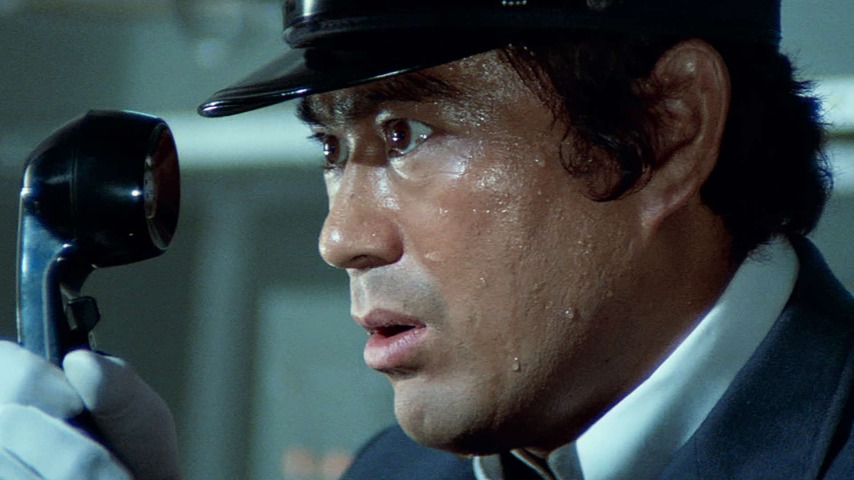Now's the perfect time to watch the 50-year-old Japanese thriller that inspired Speed
Netflix's Bullet Train remake is nowhere near as interesting as its empathetic '70s inspiration.
Photo: Toei Company
The biggest difference between Netflix’s slick new thriller Bullet Train Explosion and the 1975 film The Bullet Train that it’s remaking isn’t the reliance on digital effects. It’s not that the new film includes flashy drone shots, or uses actual Shinkansen units (thanks to the support of the East Japan Railway Company) when filming a bullet train that can’t dip below 100 km/h at risk of onboard bombs detonating. It’s not even that the speed the train must maintain is 20 km/h faster than the original, which is a hilariously meaningless distinction that sums up the modern mentality towards remaking movies: Just crank those rookie numbers up! No, it’s that, in Bullet Train Explosion, nobody will negotiate with terrorists, so the perpetrators who planted the speed-reliant explosives remain distant, inhuman, and inconsequential. It tells a story of disparate groups working in harmony to overcome a faceless threat. In the far superior Bullet Train, understanding who’s behind this potential disaster—those beaten down by corporations and the government—is the only way to stop it.
Junya Sato’s The Bullet Train, which alongside Runaway Train would help form the basis for Jan de Bont’s blistering bus race Speed, itself grew from a bevy of genre influences, namely Hollywood disaster movies like The Towering Inferno, Earthquake, and, of course, Airport. It also grew from a disillusionment around Japan’s booming post-war economy.
Instead of generating increasingly hilarious melodrama (aside from a devotion to intense zooms, and a few panicking passenger gags that Airplane! would envy), The Bullet Train uses its high-concept plot to empathize with the downtrodden desperates who concocted it. The true villains are the institutions that prioritize profit and positive optics over human life. There’s still a large ensemble of big personalities—including the director of the Shinkansen, the bevy of cops chasing down the perps, the pregnant passenger who goes into labor at full speed, and legendary action star Sonny Chiba dripping with perspiration while driving the train—but the most nuanced characters are the conspirators, led by Tetsuo Okita (Ken Takakura).
Small business owner Okita, whose posse includes former radical students and his own blue-collar co-workers, is a failure. He’s middle-aged, tired, broke, divorced. He’s an unsuitable father figure to both his young son and the employee he’s taken under his wing. Pushed to a place they can no longer tolerate by a country that seems to have left them behind, his crew can only see one option to get what they feel they’re owed from their government. That option just happens to involve the complicated plan of strapping explosives to a train that go off once the train slows down below a certain speed. But despite being sold on the premise of a barreling time bomb, much of The Bullet Train is spent on flashbacks detailing Okita and his team’s radicalization, like another terrorist-sympathetic thriller, How To Blow Up A Pipeline.








































